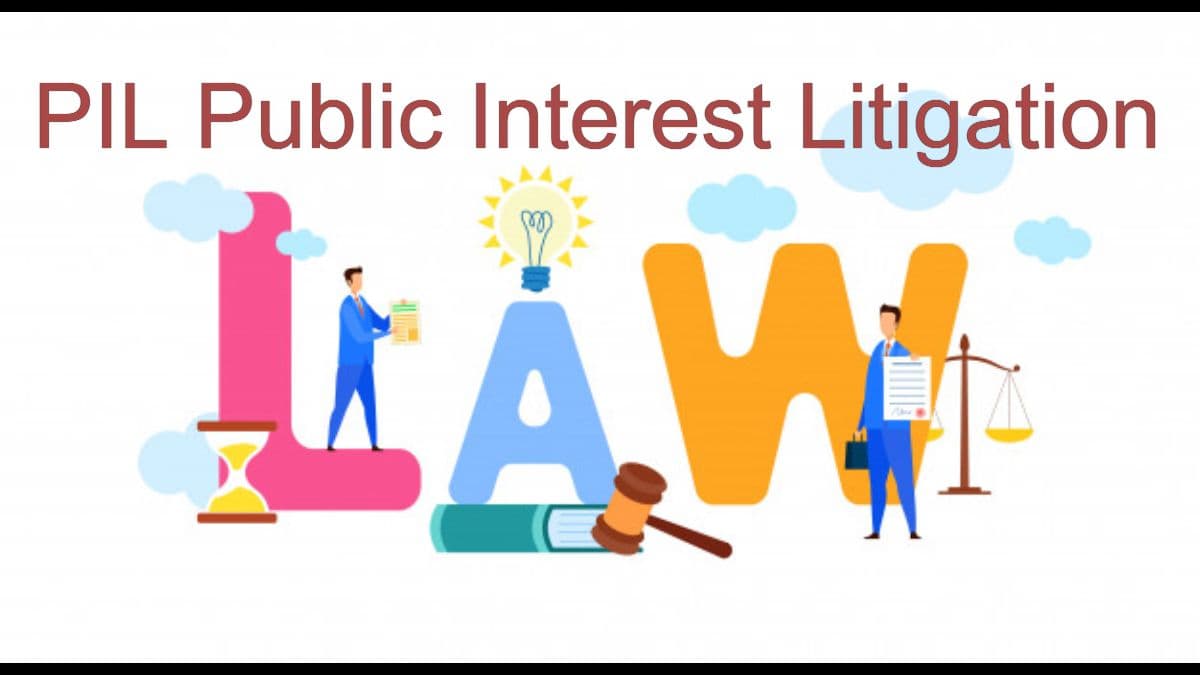Advocates for PUBLIC INTEREST LITIGATION [PIL]
Find and Choose the Best Advocates for Public-Interest Litigation in Chennai, Tamil Nadu, India. Appellate Lawyers office is one of the Top Law Firm [Attorney Chamber] for filing Writ Petitions such as PIL Public-Interest Litigation. Meet a Senior Counsel to file a Writ Petition In the Madras High Court and Supreme Court of India.
What is Public Interest Litigation – PIL?
Introduction: Public-Interest Litigation in India is a legitimate challenge battled judicially. It is to a defensive layer of the public interest. Moreover, It is presented in a court of law, not by the aggrieved party yet by the court itself or by some other private gathering. It isn’t fundamental, for the activity of the court’s jurisdiction. That the individual who is the victim ought to move toward the court. Public litigation in India is an uncommon remedy. That is accessible at a less expensive expense to all residents of the nation. All defendants should not utilize it as a substitute for customary ones.
PIL in India is a favourable device of Indian Law in the accompanying settings:
- In Public Interest Litigation [PIL} vigilant residents of the nation can locate an economically lawful remedy. Because there is just an ostensible fixed court charge engaged with this.
- Further, the disputants can concentrate consideration on. And accomplish results relating to bigger public issues. Particularly in the fields of human rights, consumer welfare, and condition.
Locus Standi
The customary standard of “Locus Standii” that
An individual whose privilege is encroached upon can record an appeal. This has been liberated by the Supreme Court in its ongoing choices. Presently, the court grants public interest litigation in India. at the occurrence of public-spirited residents. For the authorization of established lawful rights. Presently, any public-spirited resident can approach the court for public reasons. By documenting a request:
- In the Supreme Court under Art.32 of the Constitution;
- In the High Court under Art.226 of the Constitution; and
- In the Court of Magistrate under Sec.133, Cr. P.C.
Public interest litigation can:
Explain the law. Consider public bodies responsible by guaranteeing that they settle on proper choices. act decently and straightforwardly and inside the dispatch of their forces.
- Help build up the law by allowing decides the chance to decipher enactment.
- Give weak individuals a voice by highlighting a significant issue. And giving a stage to upholding their rights.
- Bring issues to light of significant issues empowering public discussion and media inclusion.
Advancement of PIL in India: Landmark Judgments
The seeds of the idea of public interest litigation were first planted in India by Justice Krishna Iyer. In 1976 in Mumbai Kamagar Sabha versus Abdul Thai. The main announced instance of Public Interest Litigation-PIL was Hussainara Khatoon versus the Province of Bihar (1979). That concentrated on the inhuman states of jails and under-trial detainees. That prompted the arrival of more than 40,000 under-trial detainees. The right, to fast equity rose as an essential thing right that had been denied to these detainees. A similar set of examples was received in ensuing cases.

Another time of the Public Interest Litigation [PIL] development was proclaimed by Justice P.N. Bhagawati. on account of S.P. Gupta versus Association of India.
For this situation, it was held that. “Any individual from the public or social activity bunch acting bonafide”. They can conjure the Writ Jurisdiction of the High Courts (under article 226) or the Supreme Court (under Article 32) looking for redressal. Against infringement of lawful or constitutional rights of people. who because of social or monetary or some other vulnerable can’t move toward the Court.
A powerful weapon for the authorization of “Public Obligations”
By this judgment, Public Interest Litigation-PIL turned into a powerful weapon for the authorization of “public obligations”. where official activity or offense brought about public injury. Any resident of India or any consumer party or social activity party would now be able to move toward the court of the nation. Looking for legitimate remedies in all situations where the interests of the overall population. Or a section of the public is in question.
Justice Bhagwati did a great deal to guarantee that the idea of PILs was unmistakably articulated. He didn’t demand the recognition of procedural details. And even treated common letters from public-disapproved of people as writ petitions.
The Supreme Court in Indian Banks’ Association, Bombay and Ors. versus M/s Devkala Consultancy Service and Ors held. “In a suitable case, where the candidate may have moved a court to her greatest advantage. and for redressal of the individual complaint. The court in assistance of Public Interest may treat it a need to enquire into the situation of the subject of litigation in the interest of justice.” Thus, a private interest case can likewise is a public interest case.

Firstly, M.C. Mehta versus Association of India. In a Public Interest Litigation brought against Ganga water contamination. Of course, it is to forestall any further contamination of Ganga water.
Vishaka v. the State of Rajasthan. The case perceived sexual harassment as an infringement of essential constitutional rights. Article 14, Article 15, and Article 21. By the way, The rules are likewise coordinated. Sexual Harassment of Women at Workplace (Prevention, Prohibition, and Redressal) Act, 2013.
Frequently Asked Questions on Public Interest Litigation PIL
Who can petition for Public Interest Litigation [PIL]?
Any individual or a group of individuals can petition for a PIL. If they demonstrate to the Courts that they are not recording the request for their plan. In this manner, anyone who is a piece of the general public and is confronting an issue. can document a PIL against the Government and not another individual or substance.
Where would one be able to petition for the PIL?
You can document the PIL in the Apex Court under Article 32 of the Indian Constitution. Or with the High Court under Article 226 of the Indian Constitution.
What are the issues of Public Importance?
In issues of extraordinary public significance the supreme court. It has passed suitable requests under its PIL jurisdiction; To check discretionary and malafide use of official tact\u003cbr\u003eb) Widening region of Public Interest Litigation Grand of an assortment of reliefs
What is the methodology to File a PIL In Court?
Any resident of India can move toward the court for a public case (upon the interest of the public) by recording an appeal: Under Supreme Court Article 32 of the constitution Under the High Court under Article 226 of the constitution\u003cbr\u003ec) Under Court of Magistrate under Section 133 CRPC. At present, a court can regard a letter as a writ appeal and make a move upon it. In such cases, the court must be fulfilled that the writ request compiles the accompanying

Other Related Pages
- Writ Petition: How to Find the Top Senior Lawyers?
- Increase in Neet PG 2021 exam centres
- ADULTERY: Is it the Best Authentic Ground for Divorce?
- Notary Public Services: How to Find the Best Attorneys help?
- Advocates for Property litigation
Contact Top PIL Lawyers
Call or WhatsApp: +91-9444014096 to make an appointment with Top Public Interest Litigation PIL Lawyers. In other words, Just Avail of the Best Legal Consultation Services. Then you can understand the Writ filing process. Finally, Legal Guidance, Legal Assistance, and Litigation Support are essential for such PIL filing.

